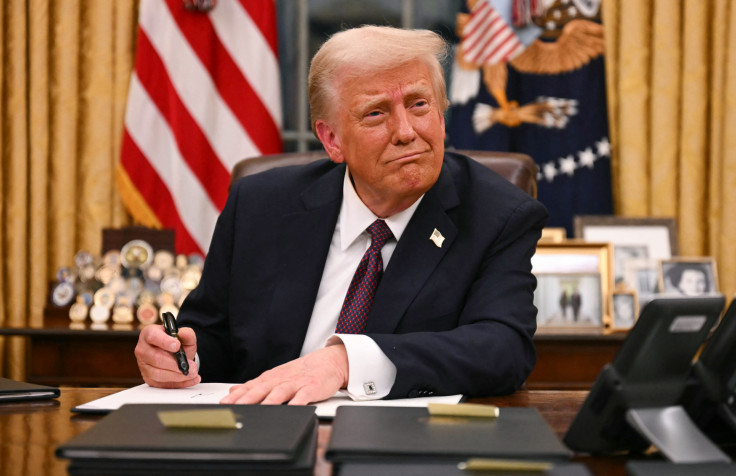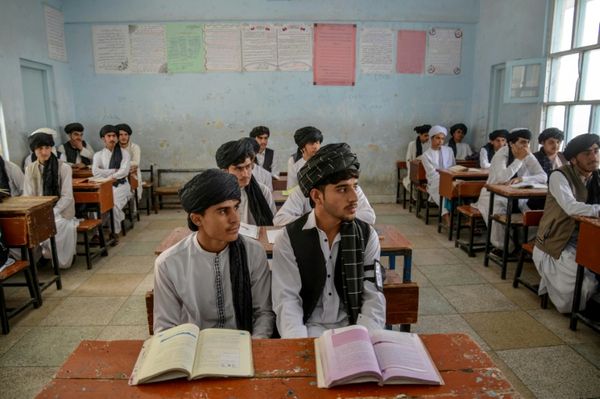
President Trump vowed to designate Mexican drug cartels as foreign terrorist organizations during his inaugural address Monday, a move that could upend the current strong relationship between Mexico and the U.S. Experts are now warning the decision could also hurt the economy.
Just hours after assuming office, the new president issued an executive order asserting the cartels' activities threatened the security of the United States. "Nearly all illegal traffic across the southern border" is controlled by the crime groups, the document said. "In certain portions of Mexico, they function as quasi-governmental entities."
Trump's new order doesn't specify which Mexican groups would be added to the list. In fact, it orders the secretary of state to come up with the names, and to also consider crime gangs from other countries— such as the MS-13 in El Salvador and the Tren de Aragua from Venezuela, The Washington Post reports.
Designating drug cartels as terrorist organizations could preface the use of military force on Mexican soil. At the same time, it could also lead to tougher financial penalties and legal ramifications in the U.S. against those involved, according to CNN.
Trump has been vocal about his plans to curb the influence of drug cartels. He has threatened to drop bombs on fentanyl labs and send special forces to take out cartel leaders, an incursion that could violate Mexico's sovereignty and disrupt relations with the United States' largest trading partners, The New York Times reports.
But the new designation could also have unintended consequences. These criminal networks have extended their operations far beyond drug trafficking and human smuggling. They are now embedded in a wide swath of the legal economy, from avocado farming to the country's billion-dollar tourism industry, making it hard to be absolutely sure that American companies are isolated from cartel activities, a recent New York Times report shows.
"This has come up in previous administrations across the political spectrum and from members of Congress who have wanted to do it," said Samantha Sultoon, a senior adviser on sanctions policy and threat finance in the Trump and Biden administrations.
"But no one has done it because they have looked at what the implications would be on trade, economic and financial relationships with Mexico and the United States," she added. "They have all come away thinking that such a designation would actually be super shortsighted and ill-considered, though prior administrations viewed the U.S.-Mexico relationship far differently than the incoming Trump administration appears to.
Identifying which businesses employ or are affiliated with criminal organizations could be nearly impossible, the report added, given that tens of thousands of people are involved and operating in various industries, including the hotel and agriculture sectors. Cartels tend to use the legal economy to launder money, which could mean that unwitting employees working at a resort or an avocado packing could technically be working for cartels unknowingly, the Times reports.
The designation could also hurt companies on both sides of the border. Interestingly, it is so broad and vague that ranches in Texas or farms in California could be swept up by the penalties if their employees send remittances to family members in Mexico who are involved in organized crime.
Subsequently, if money transfer companies like Western Union also stop transactions to Mexico over worries about properly vetting Mexican clients, it could affect the remittances the country relies on. That would be devastating to the Mexican economy, which received $63.3 billion in remittances in 2023, nearly 5% of the country's gross domestic product.
© 2024 Latin Times. All rights reserved. Do not reproduce without permission.








